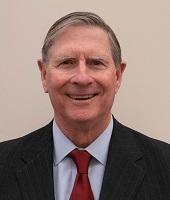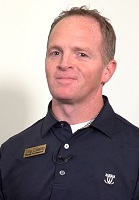BY R. LISLE BAKER & ANTHONY COLESANO
Lawyers are used to doing legal work that implies physical activity—making motions, standing up for their clients, and even sitting in judgment. But how can attorneys find ways to actually be physically active when they are so busy in their offices? This article explores why and how that might occur.
We believe readers can take judicial notice of how much lawyers sit still compared to other learned professions like medicine, architecture, or education, each of which has some movement built in to see patients, view buildings, or go to classes. Indeed, you are probably sitting still as you read this article. If you are a lawyer who would like to be more physically active but find it hard to do, this article is for you. In it, we…
- Explain the role that physical activity can play in aiding your professional success
- Recommend laying a foundation of a medical and fitness assessment
- Explain some activities you can do to take an energizing break in your office—without equipment, getting on the floor, or wearing special clothes
- Explore how you might find time in your day to be more active.
Why physical activity matters for professional success.
Long ago, lawyer and, later, President John Adams said, “exercise invigorates, and enlivens all the faculties of body and mind.” Recent research indicates that he was right; physical activity not only makes us physically healthier, but it can also help reduce depression (a problem for many lawyers) and enhance mental acuity. In other words, physical activity will not only help your body but also how you feel and think. Also, while anecdotal evidence, a number of successful Boston lawyers practicing in litigation, real estate transactions, or dispute resolution speaking to Suffolk law students reported practices of regular exercise during the workweek, like swimming or running, which they said added value to their professional day, including sparking ideas that had not occurred to them before. The ABA Well-Being Toolkit for Lawyers and Legal Employers, also recommends, among other things, that lawyers strive for “regular physical activity.”
What can you do?
Physical activity can best be built on a foundation of what activity best fits you. Mark Twain is quoted as having said that, “I take my only exercise acting as a pallbearer at the funerals of my friends who exercise regularly.” In other words, make sure you consult your doctor before you begin. Elizabeth Frates, MD, who is certified in the new medical specialty of lifestyle medicine, advises you to check in first with your primary care physician before getting underway. In Lifestyle Medicine, she and her colleagues counsel that while habitual, vigorous exercise can reduce the risk of a heart attack, for some people “going directly from a sedentary lifestyle to vigorous exercise can be dangerous,” and that “patients who are at high risk of having an adverse event while exercising receive further evaluation prior to initiating any noteworthy level of physical activity.”
Assuming that you are medically cleared to become more physically active, who can help you? Just as you would not represent yourself in a personal legal matter, it is wise to consult a professional. While physical training has no formal licensure, at least two professional associations focus on evidence-based practices, such as the National Strength and Condition Association and the American College of Sports Medicine. You can also seek out a physician trained in lifestyle medicine to get you started. (The American College of Lifestyle Medicine is a good resource.) To make sure your trainer understands what you need, ask why some specific action or practice is recommended, as, like a will or a trust, or a suit of clothes, one size does not fit all.
Your personal fitness workup and some principles of good fitness.
Here are some questions that Tony Colesano customarily asks new clients.
- What is your fitness history, not only in general, but also any problems with a specific joint or area?
- Any medical history to be aware of? Heart, breathing, digestion? Medications?
- What is your current lifestyle now? Inactive? Active? Irregular?
- What do you want to accomplish? Improved fitness, appearance, posture?
- Is there some physical activity that you most want to do better, or most enjoy?
With that profile in mind, Tony explores the options in four categories to determine which a client should work on most, recognizing all four are important principles of fitness.
- Flexibility. The human body is designed to move, but to do so, some bones and joints are relatively stable and others operate in wide ranges of motion. For example, while the upper back is designed to twist within a wide range, the lower back is not.
- Athleticism. These are aspects of fitness such as balance, core stability, and agility.
- Strength. This is the capacity to move against resistance, such as getting up out of a chair without using your arms.
- Cardio. This is the heart, lungs, and circulatory system.
Once the client is assessed, Tony then offers to lead the client through a brief workout to illustrate what he has in mind, with one additional element: gradual increasing intensity, like in Ravel’s Bolero, but without pain. Exertion is important, but pain is a signal that something is wrong, and you should respect it.
Take an energizing fitness break in your office.
Almost everyone can benefit from a break from work as your mind can benefit from rest, too, just like your body. (Checking your email does not qualify as a mind-break, as some of your decision-making capacity is still engaged.) Instead, try taking an energizing fitness break in your office which you can do in less than .1 of a billable hour, or longer if you have time. (A companion video of the authors demonstrating this series of exercises, in slightly different order, is available.)
1. Begin with a firm foundation.
Start from a stable foundation, what Tony calls the athletic posture or “ready position.” This posture is how we rake leaves, hit a golf shot, play tennis, or put a suitcase in the overhead compartment on an airplane. Here your body is most stable, yet able to move in any direction. Because this posture is foundational, here are its key elements: the feet are about shoulder-width apart; the hands extended, palms forward, ready but relaxed; the core muscles are firm, the chest up, and shoulder pulled back and down; the head is up and alert, and the back is not rounded, but the back, shoulders, and head are aligned so that the body is bent slightly forward at the hip.
This aspect is true even when seated, as the spine is erect, rather than bent over. This ready position should be considered the default standing or sitting posture for virtually all these exercises, as well as much of daily life as you can manage.
2. Invest enough time to gain the benefit.
While possible for longer, begin with about a minute for each of the following activities. (To help you keep time and energized, here is a link to some lively music by Mozart, broken into 20-second increments with half-way markers followed by 10-second recovery breaks.)
3. Warm up slowly.
Begin to warm up slowly in three planes of motion. Try marching in place. Then step side-to-side, like a speed skater. Then slowly twist your upper body in place, lifting one heel up and then the other, like in a golf swing.
4. Loosen your mobile joints.
Now begin to move the ball and socket joints that are designed to move in deep ranges of motion, like your arms at the shoulders and your legs at the hips. Gradually make larger arm circles, front and back, and then do the same with your legs, like monster steps. Do each separately as you are aiming at a range of motion in each socket.
5. Stretch the hip and back muscles you underuse at work.
Once you have warmed up and loosened up, stand next to your chair and see if you can put one knee on it so that you can support yourself on it while pressing forward with your rear. Sitting for extended periods tends to foreshorten a muscle group that comes in front of the hip called the “hip-flexors.” Because they attach to the lower spine in back, stretching them abruptly after sitting often causes back pain, which is actually related to what is going on in front, rather than behind. If your hip flexors are tight (and not injured or weak), this stretching exercise helps restore your natural muscular balance lost through long sitting.
Also, bending over to read or to write (or look at your phone) for extended periods can cause your posture to move away from being upright. To help correct for this tendency, see if you can sit back against a wall or door, and then touch it with your head, your shoulder blades, and your rear end at the same time while trying to sandpaper the wall with the backs of your arms.
This exercise will help re-align your spine, which has likely crept out of the athletic posture as you work. (You can reinforce this practice by, as Tony’s colleague, Jim Young, has suggested, by walking “as if you are looking for someone in the airport.”) Also, when working, make sure your computer screen is at eye level. You can also put a cushion at your middle back in your chair to help you straighten up.
6. Strengthen your legs and upper body.
Those of us who sit for a long time also tend to weaken our legs when we use our arms to help us get out of a chair. Even if you find you lack the strength to get out of a standard chair (or off the toilet) unassisted by your arms, you can strengthen those muscles simply by getting up and down. If you are too weak to do that unassisted, try sitting down slowly for as long as you can. Even though you may plop into the chair for the last few inches, each time you try to lower yourself slowly you build strength.
You can also build upper body strength the same way by doing a push-up off your desk, or again, if not yet strong enough, lowering yourself slowly in the reverse of a push-up—sort of a “let-down.” In each case try to maintain your athletic posture throughout as that will help you strengthen the key muscles in your trunk that support your spine. (A strong athletic posture displays confidence to clients and colleagues alike, and also makes possible a firm handshake.)
7. Get your heart rate up.
Even this modest level of activity over about four minutes should have begun to raise your heart rate. You can move it even higher by shadow-boxing in place, or holding the body steady from the waist down and moving the upper torso rapidly through a small range of motion back and forth in what is called a “Gladiator” exercise. Using the Mozart music clip to time yourself, try it for 20 seconds, rest for 10 seconds, for four cycles totaling two minutes, as interval training can be beneficial under the right conditions. (A former student wrote that he has found Tony’s exercises as helpful substitutes for the many cups of office coffee he used to drink between tasks at work.)
8. Finish with a resetting stretch.
Cool down and finish with a stretch to reset your body by putting your arms out front like a sleepwalker, then clasping them behind you, bend at the waist (not the back) to let your hands dangle, then bend your knees so you can touch your toes. Gradually come up and reach overhead, then move your arms down on each side so that you look like the letter T, and you are done.
While brief, this activity series fulfills Tony’s Three Laws of Motion:
- First, do no harm. Good exercise should not hurt.
- Second, do some good. Gradually increase intensity so that you are challenged without violating the First Law.
- Third, exercise in three/fourths time. Move in three planes of motion (forward-backward, side-to-side, rotation) addressing the four components of fitness (flexibility, athleticism, strength, and cardiovascular capacity) and even add some music you like to make it more fun. Even if you don’t dance, music can help keep you moving.
The point here is not to make you into an athlete, but to help you make tangible gains over what you are doing now, which will increase the more time and exertion you put into it and the more of a habit it becomes. Also, this is an introduction to some general principles, but like many general principles in law, they only matter when applied to an individual case, which is why preliminary medical advice and working with a good fitness professional are also important. Also, a fitness professional can help you vary your exercise routine so that it does not become boring but also helps prepare you for challenges you have not yet encountered. You want to be fit for your professional and personal life, not just for exercise.
How do you find time to do these exercises?
First, once you have the basic principles in mind, and the exercises to which they relate, you can use them to take a break from your work or when you get up in the morning. But beyond abiding by Tony’s Three Laws of Motion, we also recommend that you be active, if you can, with other people. Law is often a lonely profession, and loneliness is itself a health-risk factor, beyond the scope of this article. That is why an exercise class, golf, tennis, or even pickleball, for example, have many benefits—they require activity, varied ranges of bodily motion, time outdoors, and often, fellowship with other players. Going for a walk with friends or even raking leaves with your spouse is good. Doing something active with other people is likely to be more fun, and also lead you to make commitments you keep.
The point is that while the fitness assessment and activities recommended here can help provide a foundation, it is likely that you will not get all the exercise that can benefit you personally and professionally unless it is something you enjoy for its own sake. If so, you will make time for it. The important thing is to find something you enjoy because the best exercise we avoid is not as good as lesser exercise we like to do.
Conclusion
In addition to physical activity, a good diet, enough sleep, and avoiding risky substances are also important. In the meantime, if you can make a fitness routine part of your morning, like brushing your teeth, or even a regular way to take an activity break once or twice during your workday, you may not only feel better but work better, too. In the meantime, the principles outlined in this article should help you get started toward better fitness and greater professional success as a result.
Lisle Baker (left; lbaker@suffolk.edu), is a law professor at Suffolk University Law School in Boston, MA, where he teaches a course in Positive Psychology for Lawyers. Anthony Colesano (right; train@tonycolesano.com) is a fitness and sports medicine professional who began his career with the New England Patriots, and now advises clients and teaches in Brookline and Cape Cod, MA.
This article originally appeared in the American Bar Association Law Practice Division’s Law Practice Today e-Magazine on January 14, 2020.



